We live-tweeted during the meeting until Twitter gave us a message that we had exceeded the number of posts allowed. Follow us on Twitter at @OzarksRomance!
June 4, 2011 -- 1:10 p.m. CT
Kelly Henkins writes as Angela Drake. Her site is http://angeladrake.blogspot.com/
She is speaking to Ozarks Romance Authors today http://ow.ly/53hr3
Topic: How to have a successful pitch session with editor or agent http://ow.ly/53hr3
Register for our 7/23/11 conference for 2 pitch opportunities #sgf #mo #amwriting http://ow.ly/4lZmp
Avalon Editor Lia Brown and Lit Agent Louise Fury will take pitches at our 7/23 conf http://ow.ly/4lZmp
Everything is a "what if" that moves the story forward.
Same with your writing career.
Must continue to ask "what if" to move your writing career forward.
Pitching is one of those "what if's."
When will you have another chance to pitch your book to an editor or agent?
What if you don't pitch at our conference 7/23/11?
When will you have another chance to pitch? Need to take advantage of this opportunity.
Kelly's info on pitching was a result of a last-minute pitch opp with an editor 10 years ago.
She gave her 1st, 2nd, and 3rd choices for pitching at the conference.
Got her conf packet and found out she was able to pitch to 2 that day.
Advice on having a great pitch?
Don't be nervous.
Kelly/Angela walked out of her first pitch session EVER with a request for full manuscript.
Agents/Editors told Kelly they are amazed by # of writers who have no idea what to do/say in pitch session.
Pitch session is like a job interview. Prepare for this!
You lose out if you don't target right editor/agent when pitching.
Sure, you'll be nervous. But be as prepared as possible.
Editors/agents are people, just like you. They've been on job interviews, been nervous, too.
Prepare well. Do your best. You are asking them to trust you to tell great story, meet deadlines.
They may ask you to make changes you don't totally agree with.
Separate yourself from the story and realize they know more than you.
You think your story is perfect? Pitch it. Editor/agent will ask questions, offer suggestions.
If editor/agent offers advice, don't be offended. Give it some thought. Will it work?
Editor/Agent knows what the book needs, often without reading it.
How do you prepare for those all-important 5 or 10 minutes in pitch?
Learn about the company. Dress appropriately. Just like a job interview.
You want this editor. Don't be mousy, mumble, etc. Be confident!
No such thing as a textbook pitch session/interview.
No editor/agent is the same. All are looking for certain things.
10 steps to making your pitch session go well...
1. Have the book finished.
What if the editor/agent asks for the full manuscript and you haven't finished?
Will you have time to finish it, polish, go over it several times, make it perfect?
All the time spent scurrying to finish book, editor/agent is waiting, accepting other offers, still looking.
She'll pick up the authors who are finishing the work and getting it to her.
Don't miss out on your opportunity because you don't have it ready to go.
Usually ask for first 3 chapters and synopsis.
Even if you get first 3 chapters and synopsis into the mail, don't let life grind to halt to finish book.
Must be in proper format and FLAWLESS.
You can't give a confident pitch if you don't even know what's going to happen in your story.
1 of first ? asked in pitch session is "Is this book finished?"
You need to know your story inside and out. If you pitch 1 story but change it, your pitch might be invalid.
If editor/agent wants to see story you pitched, but you changed it so much that it isn't the same...
... might not be interested since it's so different.
Basically, the blurb on back of book is your pitch.
Just like a reader deciding if she wants to spend $ to buy your book,
... editor/agent looks at pitch to see if she wants to take chance on you as writer.
Register for our 7/23/11 conference for 2 pitch opportunities #sgf #mo #amwriting http://ow.ly/4lZmp
Avalon Editor Lia Brown and Lit Agent Louise Fury will take pitches at our 7/23 conf http://ow.ly/4lZmp
10 steps to making your pitch session go well...
2. Know your qualifications.
Do you need to be an expert? Expert on subjects mentioned in your book?
No, you don't have to be an expert. But know the topic well enough.
Maybe you worked at a summer job related to the heroine's career.
Maybe you've studied it well, researched well, have access to experts.
If non-fiction, being an expert is sometimes required.
Other qualifications? Holding position in writers' group, contest winner, degree in whatever...
...speaking at confererence or workshops, mentor other writers, critique group.
Anything that lends credibility and lets editor/agent know you are serious about writing career.
If writing non-fiction, need to show knowledge. Example?
Writing about hiking in national forest, and you do this as a hobby.
The more you pad your writer's resume with credentials, the better.
Take a college course on the topic you're writing about. Interview people.
Need to know about guns? Take a handgun course.
10 steps to making your pitch session go well...
3. Know the house.
Would you walk into a job interview knowing nothing about the company or job? No!
Learn about the publishing house. Who is the acquisitions editor?
It's not the senior editor. It's the underdogs.
Do they publish what you write?
Do you write steampunk but you're pitching to house that wants contemporary?
What about word count? What are they looking for?
Know your genre, the publishing house, and what they are looking for.
How many titles do they release in a month? Year?
Do they accept unsolicited manuscripts?
If they don't accept unsolicited manuscripts, here is your loophole:
You don't have an agent? You're not getting in that way.
Conferences are your loop hole!
If Writers' Market says a house does NOT accept unsolicited ms, why are they at a conference?
They are looking for ms.
They won't waste their time going to conf if they're not looking for new material, new writers.
Register for our 7/23/11 conference for 2 pitch opportunities #sgf #mo #amwriting http://ow.ly/4lZmp
Avalon Editor Lia Brown and Lit Agent Louise Fury will take pitches at our 7/23 conf http://ow.ly/4lZmp
Take advantage of conferences where editors/agents are accepting pitch sessions!!!
Conf can be expensive - tuition, travel, hotel, etc.
Choose conferences where you can get more bang for your buck.
Writer's Digest lists upcoming conferences.
Writers' associations list conferences in their genres.
Research conferences and find out where agents/editors will accept pitches.
Invest your money well in conferences with editors/agents accepting pitches.
Ozarks Romance Authors has 2 TOP NAME people coming to 7/23/11 conf, accepting pitches.
If you don't even know house's word count, how do you know your ms is right for them?
Guidelines are usually online. Do your research before pitch session.
Know the publishing house, know the editor/agent. Know what she's looking for.
If they're looking for contemporary romance, do you pitch sci-fi fantasy? NO!
Many editors/agents now have blogs and discuss what they're looking for. Do your research.
See what they are looking for. Look at their web sites.
eHarlequin.com often has free reads online. This is what's selling, so it's what they're looking for.
Don't let someone tell you no one is reading what you're writing.
Don't let someone tell you genre is dead.
Write what's in your heart, what you want to write.
Genres come in and out of style. It might come back if it's "out" now.
A year ago, you didn't see the word "steampunk" everywhere, but now it's hot.
A year ago, people were writing steampunk so they rode along and it's popular now.
10 steps to having a great pitch session...
4. Know the editor or agent
Editors/agents often have certain time period they're interested in.
Read their blogs.
Editors/agents often say on Twitter or Facebook if they're looking for certain things.
Follow them on FB and Twitter!
Are there authors who write in a way that's similar to yours?
You're not copying, of course. But similar genre, style, etc.
Are you more of a sweet romance? Women's fiction? Mainstream?
Is your writing style edgy? Are you the next Tom Clancy? What's your flavor?
Editor/agent hasn't read your stuff yet, but if you say...
"I write in a style similar to ____"
or "My story is a cross between ___ and ____"
... this helps editor/agent know more about your writing.
Can you find out something personal about the editor/agent?
Example: If editor/agent is a new mom and your story focuses on kids,
bring that up in the pitch session.
It's not all about your book. It's about the whole package.
Authors often mention their agent or editor. It takes detective work sometimes to discover.
Find out agent/editor of authors you like, authors who you are similar to.
Do research. Has editor/agent recently lost authors? Might be looking for new ones.
Some publishing houses won't work with certain agents.
Send email if you're curious. Ask agent if they work with specific houses the most.
You've done your homework, know everything about agent/editor you're pitching to.
Book is finished, flawless, and you've written blurb.
Now what? Take your blurb/pitch, stand in front of mirror, watch yourself deliver pitch.
Look at your reflexion. Make eye contact with yourself.
Look confident. First few times, you'll be wobbly. This is silly!
Get it out NOW, in front of mirror, and you'll feel confident at pitch session.
If you have a critique group (like Ozarks Romance Authors), pitch to each other.
You'll be more comfortable pitching to someone you know.
They'll see things you need to change. Stop fidgeting, etc.
They'll notice things that you do not notice.
Once you have the book finished, everything else is easy.
Business cards -- Vital if you are pitching!
White card with black print is best. No cutesy stuff!
Editor/agent often takes home hundreds of biz cards at a conference.
Graphics are OK, but not too busy or cutesy.
Use the back of biz card if you are pitching.
Set aside biz cards for pitch session and include on the back:
Title, target market, theme, word count
Don't put this on all of your biz cards for general networking. Only for pitch sessions.
This info will help you stand out and remind editor/agent about you.
Little things like this help you stand out immediately after appointment
Helps when you submit, too. Same info will be carried across.
Oops! Sorry! I lost track of which number we were on.
8. Dress appropriately
Business attire is best. Make a good impression.
If you want to dress casually for rest of conference, fine. Just change before pitch.
Women: Dress, skirt, pants, whatever. As long as you look polished.
A short heel is best, but do not wear flip-flops!
Men: Nice dress pants, business casual, possibly blazer.
Don't go into pitch dressed in a gimmicky way to promote your book!
Don't go into pitch dressed like Laura Ingalls Wilder!
This is not professional and it distracts from your goal.
Avoid cologne, perfume, jewelry that will distract.
The last thing you want is to attack editor/agent who has allergies.
Don't want her to spend your entire pitch sneezing at your cologne.
Dangly jewelry can be a distraction.
Kelly says she sees so many people go into pitches popping gum.
Sure, you just had lunch and you're worried about breath.
Use a mint instead of popping gum!
Neat, clean, and tidy is the key.
You're not out to impress with fashion sense. You're a confident business person.
9. Be on time!
Get there about 10-15 minutes early.
Yes, you will end up sitting there waiting. That's fine.
This can work to your advantage. If someone gets too nervous and drops out, you might go early.
You might end up with 2 time slots if person in front of you drops out.
10. Be confident!
You're there. You're prepared. You're confident. You're ready.
How do you feel? Are you getting nervous? Think you can't handle it?
Stop and ask yourself "What if?"
What if you don't go through with pitch session?
Don't let this end with you giving up without a fighting chance.
5 years from now, do you want to say "If only I hadn't chickened out"?
You'll look at friends' books on the shelves and wish you had followed through.
Be confident! You've come this far! Writing the book was the hard part.
Being early is also good in case you can hear other pitches.
Listen and get an idea of questions asked, editor/agent personality, etc.
When you arrive for pitch, extend your hand and introduce yourself.
Basic etiquette is rare these days.
Introducing yourself shows you are confident and you're a serious business person.
Agent/editor often have questions/comments to help break the ice.
These questions help separate you-the-person from you-the-writer.
Then you give her the pitch you have rehearsed so well.
Let your passion for the story take over. That passion is what you want editor/agent to hear.
If you talk about book in monotone voice, it says you have no interest in story.
Don't have to bounce in chair and be all excited. Just let natural flavor of story come through.
Editor/agent will recognize you're at the end. Now you ask if she has questions.
Don't let her questions scare you. They serve a purpose.
She's trying to see if her house has a place for your story.
She might be thinking "We've been thinking about doing a line of ___" and you fit.
Answer her questions with utmost confidence. You know the answers. Don't get flustered.
If you can't tell her about your characters, who can?
She may even ask more questions to dig deeper. Be prepared.
When meeting is over, extend hand, thank editor/agent BY NAME for their time.
Remember biz card you wrote info on? Give editor/agent this biz card!
If she asks for first 3 chapters and synopsis, be ready to send it as soon as you get home.
Did she ask for hard copy or email? Send what editor/agent asks for.
Do not take your entire manuscript to the conference and expect editor/agent to take it!!!
While you are fresh in editor/agent's mind, send whatever she asks for.
When you leave pitch, take a minute to step aside and make notes about meeting.
Jot down whatever editor/agent said that will help your pitch stand out.
Did she suggest certain things? Make a note on back of another biz card along with editor/agent name.
Attach that biz card to ms if you snail mail it.
Or if you email it, mention this info in body of email.
Example: "We spoke at the ORA conference in Springfield. You suggested..."
Some editors/agents give you 3 keywords to include in cover letter w/partial.
This helps cut down on unsolicited ms. If you don't use 3 keywords, they pitch.
If editor/agent says not interested, ask what they ARE looking for.
Ask what they would like to receive.
Anything you come out of pitch session with makes you a winner.
Even if they don't ask for ms or partial, you have grown!
What if your manuscript isn't finished? Should you pitch?
Absolutely! Very rare to get this type of opportunity.
Ask professionals ins and outs that you want to clarify.
Ask about the business in general.
Sure, you could email questions but might not ever hear from editor/agent.
This pitch session can be a huge foot in the door!
Google "Predators and Editor" -- great resource!
Thanks for joining us today via live-tweet!
ORA's next meeting is Sat, July 2, 2011. http://ow.ly/5byNH
Follow us @OzarksRomance & http://www.facebook.com/ozarksromanceauthors for July details.
Reminder: Register for our annual conference by July 1 for discount. http://ow.ly/4lZmp
Attendees can pitch to Lit Agent Louise Fury & Avalon Editor Lia Brown! http://ow.ly/4lZmp
Have you registered to attend our annual conference in Springfield, Missouri, on July 23, 2011?
Once you register, you'll be able to schedule your one-on-one pitch session. Opportunities like this DO NOT come along often in the midwest. A pitch session can be one of the best ways to get your foot in the door and establish a relationship with your future editor or agent. Take advantage of this amazing opportunity now by registering for our conference by clicking here.
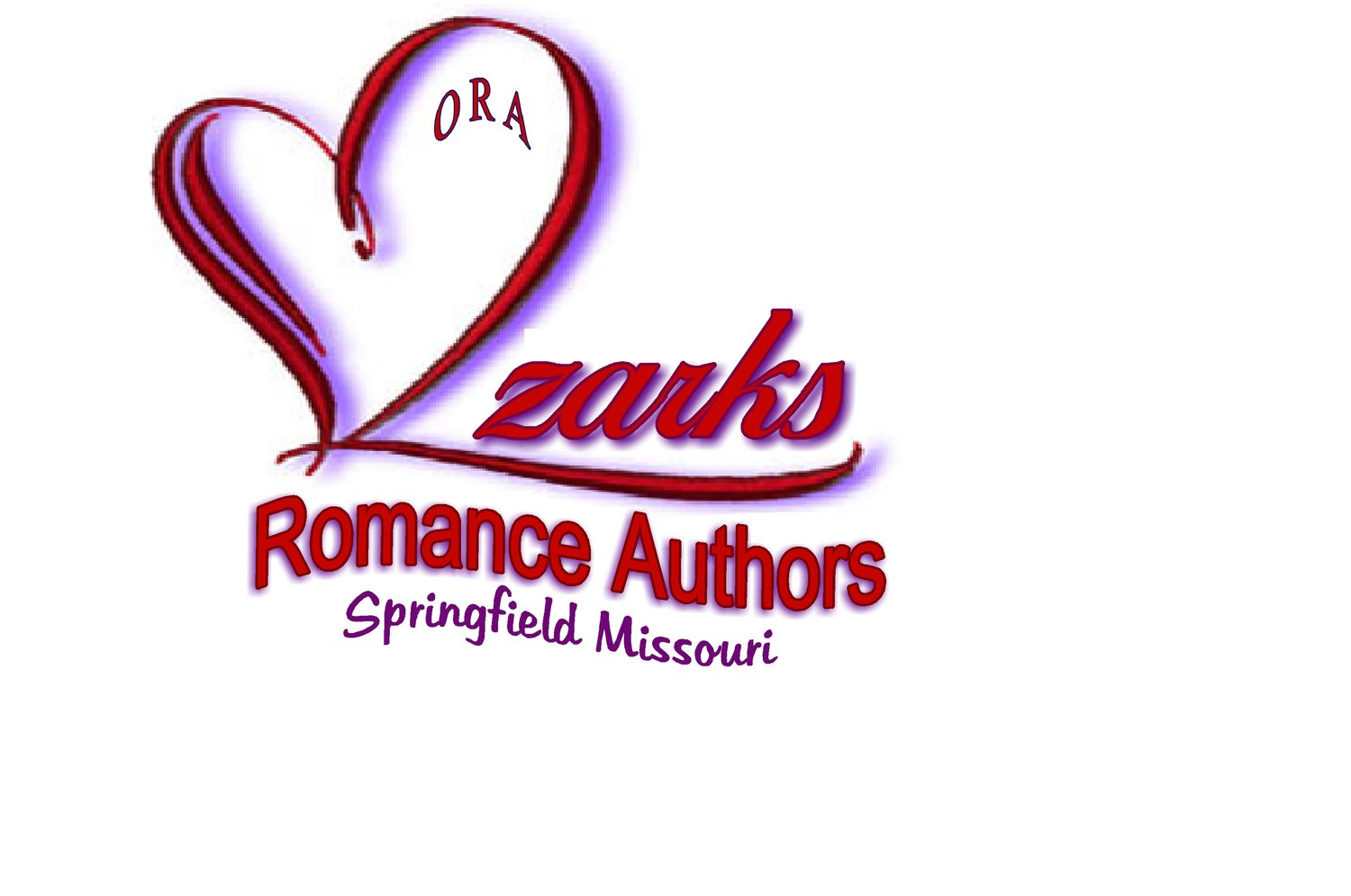






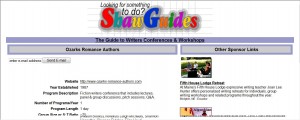







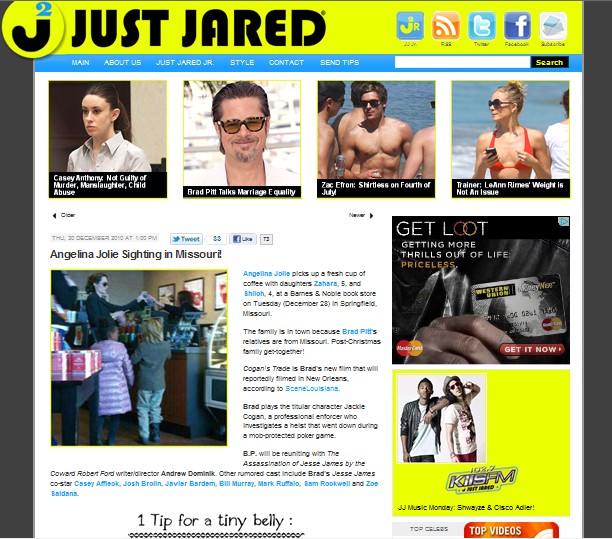
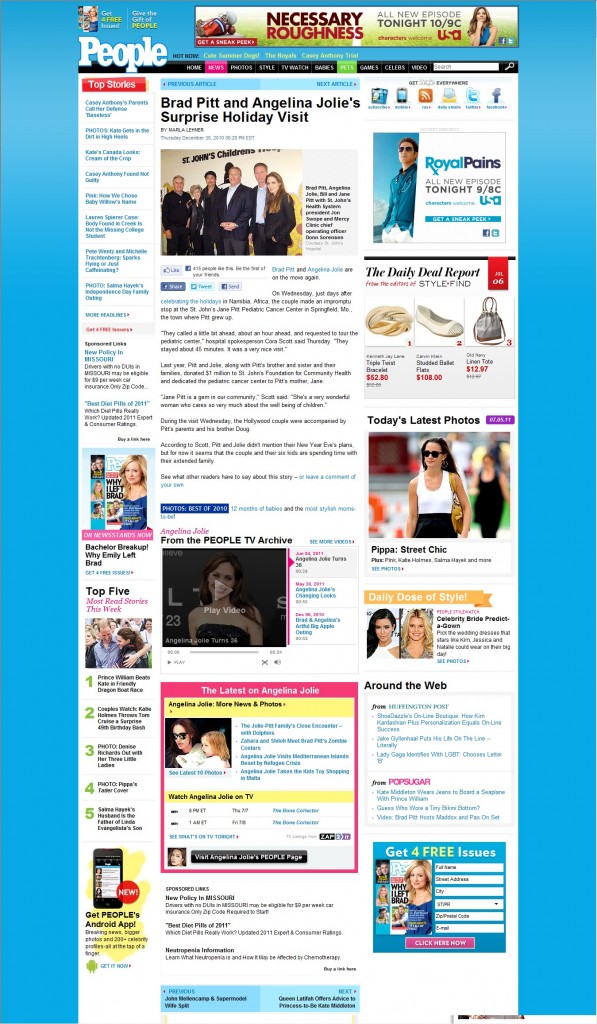






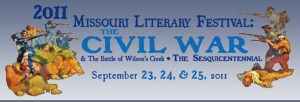
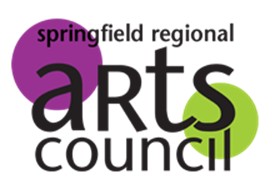


 entral Arkansas author, Shannon Taylor Vannatter is a stay-at-home mom/pastor’s wife/writer. She recently signed a three-book contract for her contemporary inspirational romance series set in Romance and Rose Bud, Arkansas.
entral Arkansas author, Shannon Taylor Vannatter is a stay-at-home mom/pastor’s wife/writer. She recently signed a three-book contract for her contemporary inspirational romance series set in Romance and Rose Bud, Arkansas. Since launching her career in 2007, award-winning author Shannon K. Butcher has penned more than eighteen titles, including the paranormal romance series, the Sentinel Wars; the action-romance series, the Edge; and a handful of romantic suspense novels and works of short fiction. Being a former engineer and current nerd, she frequently uses charts, graphs and tables to aid her in the mechanics of story design and to keep track of all those pesky characters and magical powers. An avid beader and glass artist, she spends her free time playing with colored glass and beads. You can find her online at
Since launching her career in 2007, award-winning author Shannon K. Butcher has penned more than eighteen titles, including the paranormal romance series, the Sentinel Wars; the action-romance series, the Edge; and a handful of romantic suspense novels and works of short fiction. Being a former engineer and current nerd, she frequently uses charts, graphs and tables to aid her in the mechanics of story design and to keep track of all those pesky characters and magical powers. An avid beader and glass artist, she spends her free time playing with colored glass and beads. You can find her online at  contemporary novels, three historical romance novels, and more than a dozen non-fiction books. More than 35 million copies of her romance novels have been published. Six of her books have been finalists for Best Traditional Romance novel in the RITA contest sponsored by Romance Writers of America. She has received two Reviewer's Choice awards from Romantic Times.
contemporary novels, three historical romance novels, and more than a dozen non-fiction books. More than 35 million copies of her romance novels have been published. Six of her books have been finalists for Best Traditional Romance novel in the RITA contest sponsored by Romance Writers of America. She has received two Reviewer's Choice awards from Romantic Times.
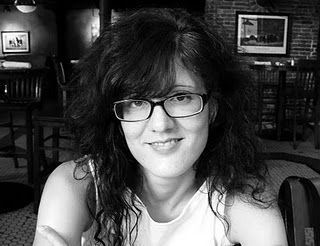 editor at Avalon Books, started her career in publishing at Starlog magazine as a high school intern, fell in love with editing and the creative process, and hasn’t wanted to do anything else since. During the last twenty years she has worked on a wide variety of fiction and nonfiction topics and genres at several publishing houses including, Marvel Comics, HarperCollins, St. Martin’s Press, Oxford University Press, and Random House Children’s Books.
editor at Avalon Books, started her career in publishing at Starlog magazine as a high school intern, fell in love with editing and the creative process, and hasn’t wanted to do anything else since. During the last twenty years she has worked on a wide variety of fiction and nonfiction topics and genres at several publishing houses including, Marvel Comics, HarperCollins, St. Martin’s Press, Oxford University Press, and Random House Children’s Books.